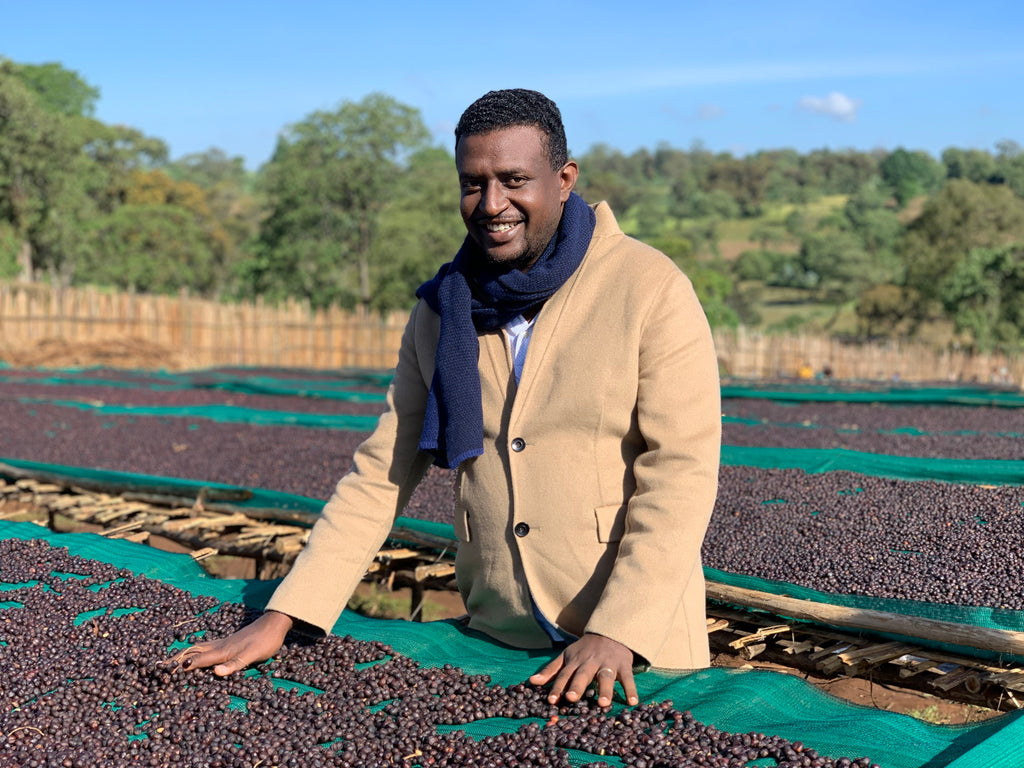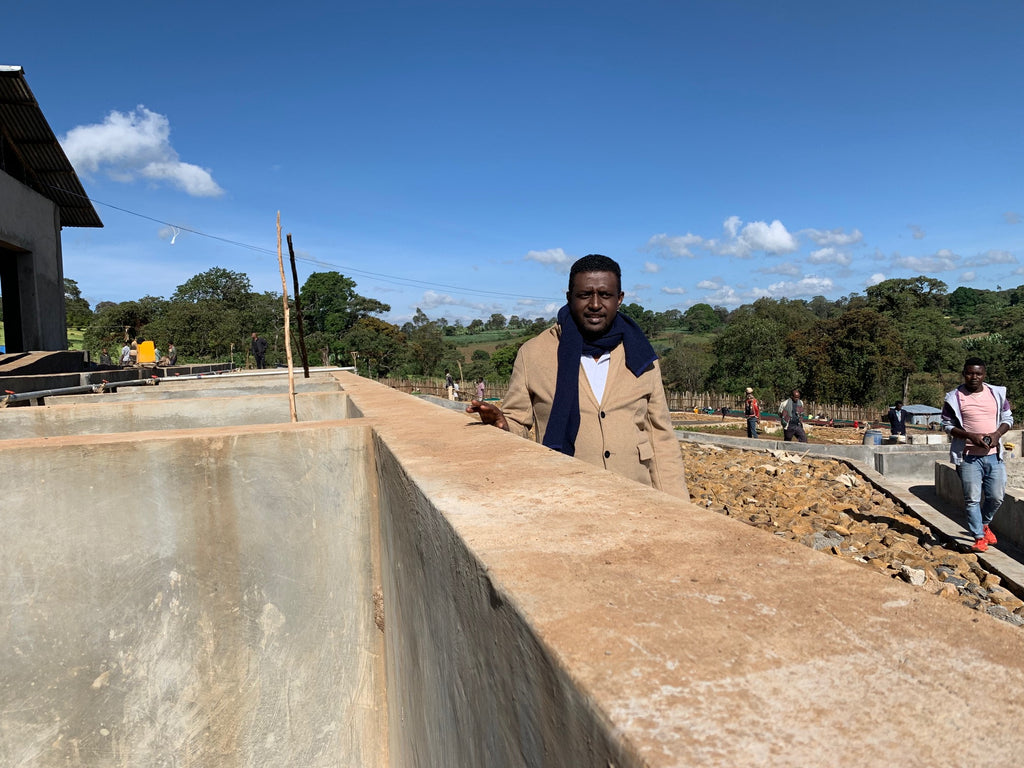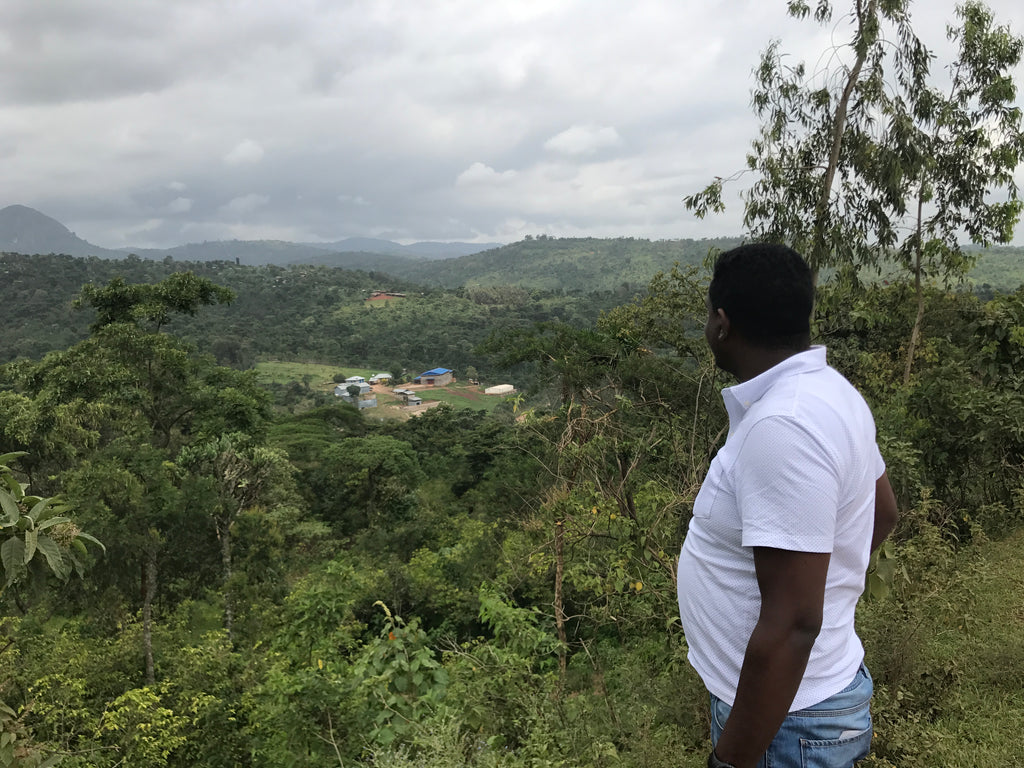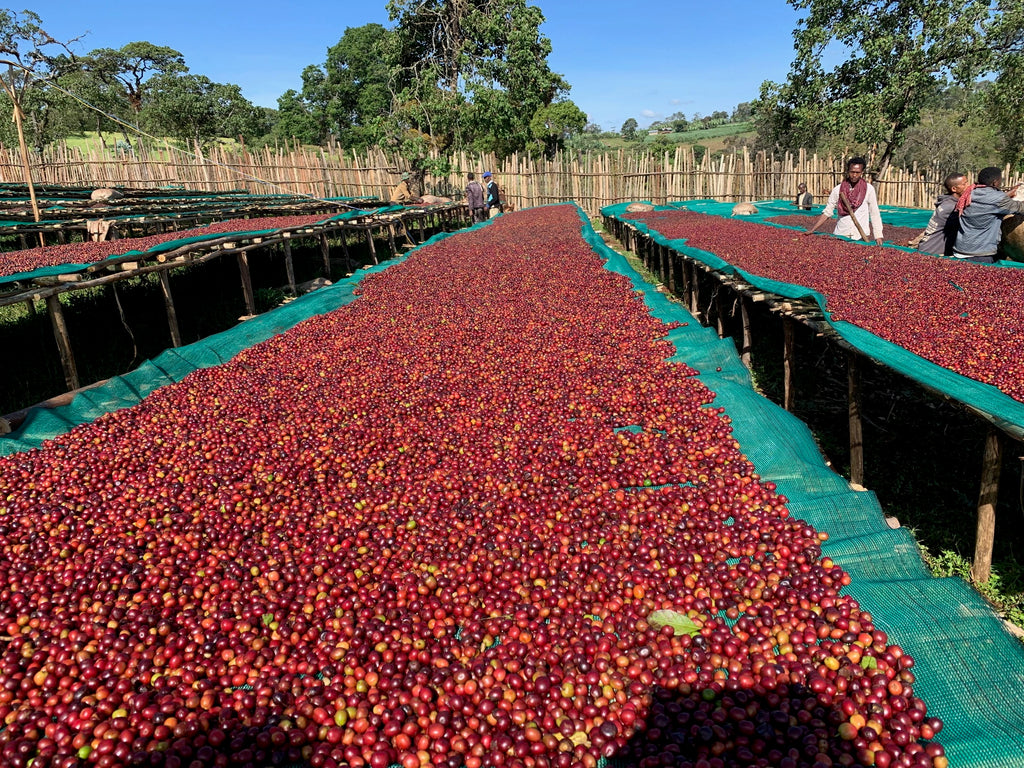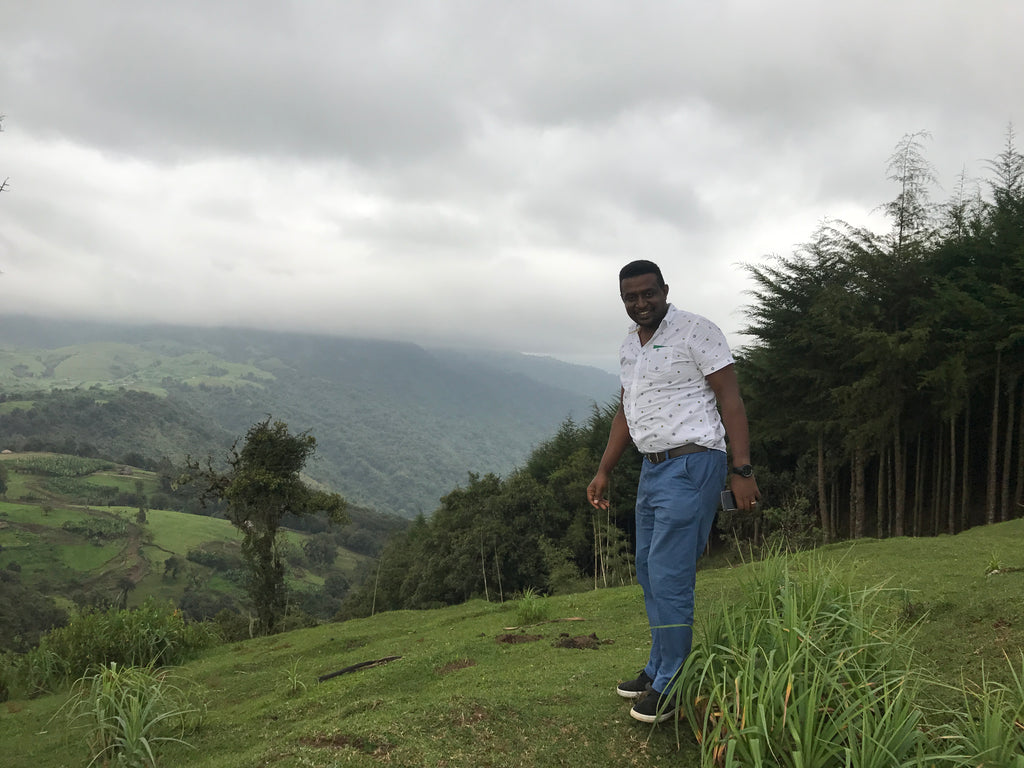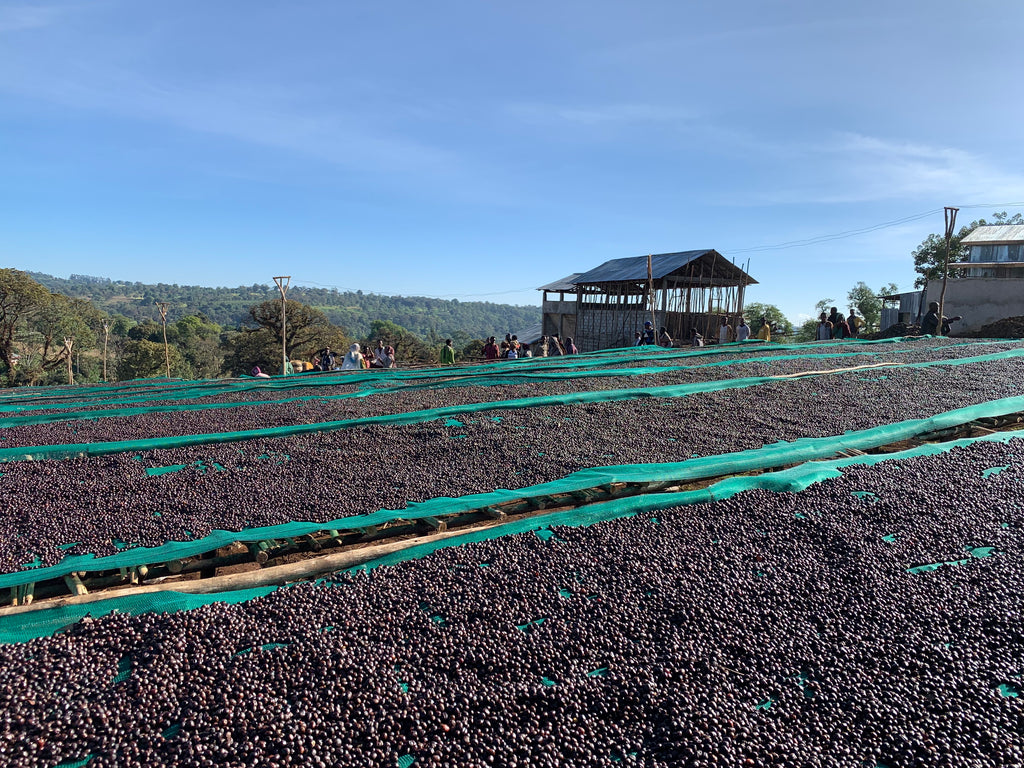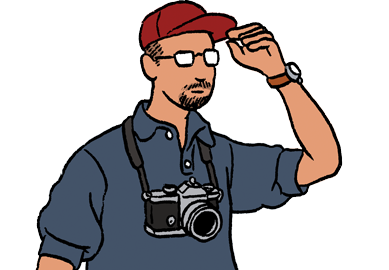Producer Profile: Israel Degfa & Ana Sora – Elevating Ethiopian Coffee from Guji
Israel Degfa is a name that resonates deeply within the Ethiopian coffee industry. Raised in a coffee-producing region, Israel’s roots in coffee run deep. His father managed a coffee mill, while his mother sold coffee to commuters at the local bus station. This early immersion in the world of coffee shaped his deep respect for farmers – not just as business partners, but as people and community members.
Ana Sora: A Young Farm with Big Ambitions
Founded in 2013, Ana Sora is a relatively new estate located in the Guji Zone of southern Ethiopia, just east of the famed town of Yirgacheffe. Despite its youth, Ana Sora has quickly gained recognition for its exceptional quality and unique terroir.
The farm sits at an extraordinary altitude of 1,900 to 2,350 metres above sea level, making it one of the highest coffee farms in Ethiopia – and indeed, the world. The walk to the farm is as breathtaking as it is exhausting, but the reward is in the cup.
Guji: A Region with a Distinct Identity
Historically, Guji coffees were sold under the broader Sidamo label, but today they are celebrated in their own right. Guji coffees are known for their bright acidity, juicy fruit notes, and often a tea-like body – characteristics that shine in Ana Sora’s offerings.
Ethiopia’s five primary coffee-producing regions – Sidamo, Limu, Yirgacheffe (a subregion of Sidamo), Harrar, and Djima – each bring their own flavour profiles. Guji, once overlooked, is now firmly on the map thanks to producers like Israel.
High Altitude, High Quality
Ana Sora’s extreme elevation contributes to the slow maturation of coffee cherries. With average temperatures between 16–19ºC, the cherries develop more complex sugars and acids, resulting in a super unique cup profile. This slower growth cycle is a key factor in the farm’s standout flavour characteristics.
It’s rare to find private farms of 250 hectares in Ethiopia – most coffee is grown in smallholder gardens of less than 2 hectares. Ana Sora is an exception, both in size and altitude, and it’s this combination that makes it so special.
Supporting Local Farmers and Communities
While Ana Sora is a private estate, Israel also sources coffee from the surrounding area. Each of his washing stations works with 1,000–2,000 smallholder farmers, each tending tiny home plots. These farmers, primarily of Oromo ethnicity and speakers of Oromife, contribute to the rich diversity of Israel’s coffee offerings.
As CEO of Kerchanshe, a leading Ethiopian coffee producing and exporting company, Israel is deeply committed to social impact. Kerchanshe reinvests 10% of its annual profits into community development, including:
- Building schools in Adola, Kercha, and currently in Gelana Gesha and Kilenso Mokonesa
- Providing clean water to rural communities
- Offering agricultural education and financial support to farmers
This holistic approach ensures that quality improvements go hand-in-hand with community upliftment.
Sharo Washing Station: Another Jewel in the Crown
In addition to Ana Sora, Israel owns the Sharo washing station, located near Bule Hora in the Sidamo region, just south of Yirgacheffe. Sharo processes cherries from local smallholders and reflects Israel’s ongoing commitment to quality, consistency, and innovation.
Improving washing station infrastructure, refining processing techniques, and supporting farmers with training and better pay are all part of Israel’s mission to elevate Ethiopian coffee on the global stage.
Why We’re Proud to Work with Israel Degfa
We’ve been sourcing coffee from Ana Sora since it first became available, and we’ve seen first-hand the evolution in quality and consistency. Israel’s passion for coffee, his respect for farmers, and his investment in community development make him a standout figure in the industry.

